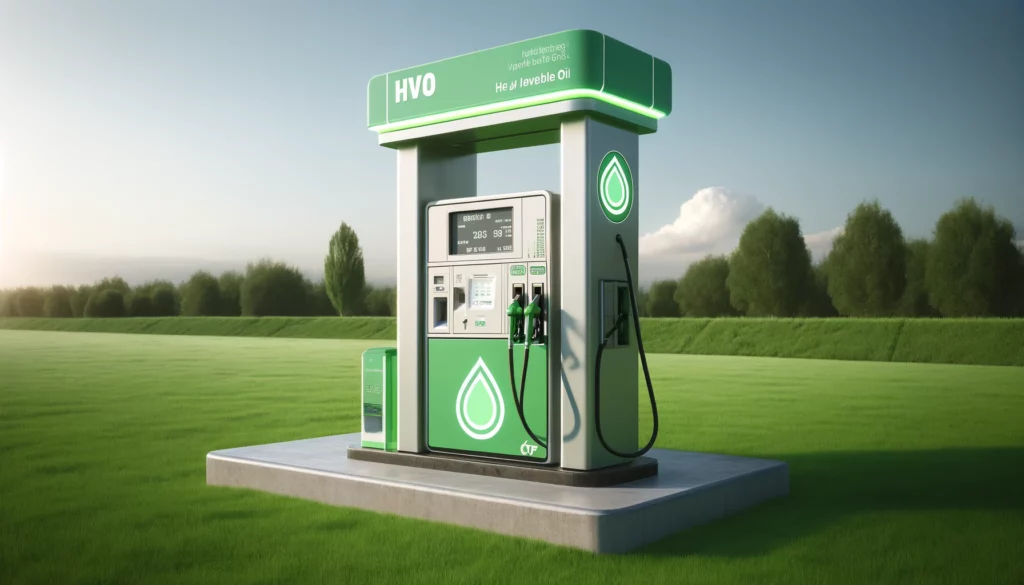At the heart of the renewable energy discussion, Hydrotreated Vegetable Oil (HVO) stands out as a key player in the push towards cleaner fuel alternatives. HVO, created through the hydrotreatment of fats or vegetable oils, is carving a niche in the energy sector, promising to significantly lower the environmental footprint of fuel consumption worldwide. As we delve into the essence and potential of HVO, it’s clear that this innovative fuel could be a game-changer in our collective quest for sustainability.
Unlocking the Potential of HVO
The essence of HVO lies in its production process, which transforms fats or vegetable oils into a premium diesel through hydrogenation. This advanced biofuel is distinct from conventional biodiesel, offering a cleaner, more efficient alternative that seamlessly fits into existing diesel engines and infrastructure. The adaptability of HVO, coupled with its environmental benefits, positions it as an ideal candidate to lead the shift towards renewable energy in the transportation sector and beyond.
Environmental Impact
The environmental case for HVO is compelling, offering a beacon of hope for significantly reducing the carbon footprint of transportation fuels. By slashing greenhouse gas emissions by up to 90% in comparison to traditional diesel, HVO stands as a pillar in the fight against climate change. Its benefits extend beyond air quality improvements; HVO is inherently biodegradable and poses minimal risk to the environment in case of spills, making it a safer alternative for ecosystems. Furthermore, its production from waste and residues champions the principles of the circular economy, turning potential environmental liabilities into valuable resources.
Emerging Trends in the HVO Market
The trajectory of the HVO market is marked by rapid growth, fueled by a global push towards sustainability and cleaner energy sources. As awareness of HVO’s benefits grows, so does its demand, particularly in sectors with hard-to-abate emissions like heavy transportation and aviation. However, this burgeoning demand brings to light the challenges of scalability and feedstock availability, which are pivotal in shaping the market’s future. Stakeholders across the value chain are called to navigate these challenges through innovation and strategic planning to unlock HVO’s full market potential.
Innovations Shaping the Future
The pathway to mainstream HVO adoption is paved with technological advancements. Recent progress in production efficiency and feedstock processing has expanded HVO’s appeal, reducing costs and enhancing sustainability. The frontier of research hints at even more promising developments, such as the exploration of novel feedstocks like algae and the refinement of catalytic processes. These innovations are not just technical victories but stepping stones towards making HVO an economically viable and environmentally preferable fuel option on a global scale.
Integrating HVO into the Energy Mix
HVO’s integration into the global energy mix is already underway, with successful case studies across Europe and North America showcasing its versatility and benefits. The transport sector, in particular, has seen a notable shift with fleets transitioning to HVO, spurred by both its environmental credentials and performance advantages. Regulatory support and policy incentives play a crucial role in this transition, highlighting the need for a supportive framework to accelerate the adoption of HVO and similar renewables. As policies evolve to favour greener fuels, the stage is set for HVO to become a cornerstone of the global energy portfolio.
HVO emerges as a frontrunner with the power to transform our energy landscape. Its environmental benefits, coupled with technological advancements and market readiness, position HVO as a critical player in the global shift towards sustainable fuels. The journey ahead for HVO is filled with opportunities for innovation, growth, and integration, calling for concerted efforts from industry, policy makers, and society at large. Embracing HVO and similar technologies is not just an environmental imperative but a strategic move towards a sustainable, low-carbon future.
For more information on HVO, please contact our HVO expert, Rita Lambe, on 044 – 931 0201 (Mullingar), 090 – 640 0140 (Athlone) or email us at sales@westmeathoil.ie


